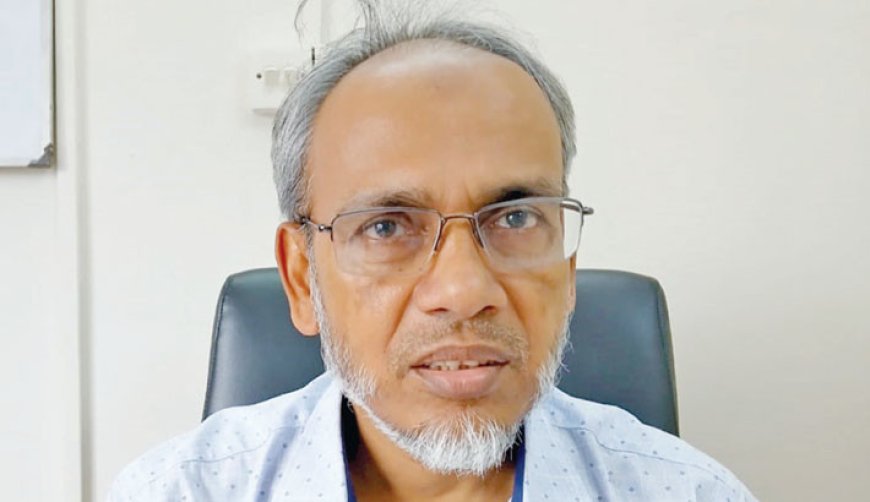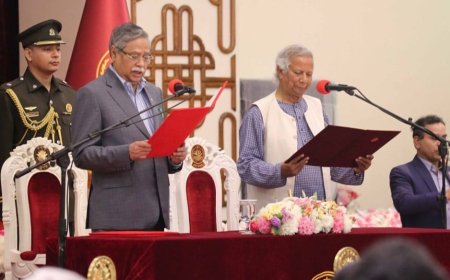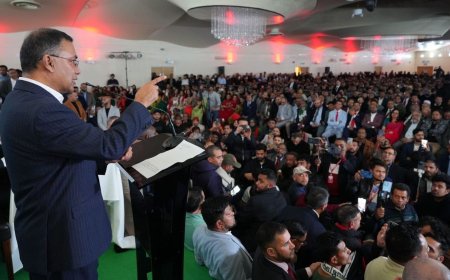Tarique Rahman transformed the anti-quota protest into a nationwide uprising
BNP Health Affairs Secretary Rafiqul Islam said in an exclusive interview

From Student Protest to Mass Uprising: Tarique Rahman’s Strategic Role
What began as a student-led protest against the quota system quickly escalated into a nationwide uprising that eventually toppled the Awami League government. According to BNP Health Affairs Secretary Dr Rafiqul Islam, this transformation was no coincidence but the outcome of a carefully designed strategy by the party’s acting chairman, Tarique Rahman.
In an exclusive interview with the Daily Sun, Dr Islam credited Tarique Rahman’s political acumen as the decisive force that guided the movement. He explained that when the protests appeared to lose momentum, it was Tarique who introduced the now-famous “one-point demand” for Sheikh Hasina’s resignation. Though initially dismissed by some student leaders, this demand soon became the rallying cry that drove the movement to its final objective.
“Tarique Rahman was not just a distant figure giving instructions,” Dr Islam said. “He anchored the movement—shaping strategy, mobilising support, and personally ensuring that both students and ordinary citizens felt his presence.”
The One-Point Movement: Tarique Rahman’s Brainchild
Dr Islam said the BNP had long pursued a strategy of turning constitutional and rights-based protests into a broader democratic struggle. When the anti-quota movement erupted in early July, the party carefully studied its trajectory before formally intervening.
“After thorough discussions in the party’s top forum, our Secretary General Mirza Fakhrul Islam Alamgir declared BNP’s support,” he explained. “That announcement sent a clear message, and from that moment, our activists took to the streets alongside students. This was the turning point that turned a limited protest into a genuine mass movement.”
He acknowledged moments when the movement seemed on the verge of collapse—especially after key student leaders were detained by police. “At that critical point, Tarique Rahman introduced the single-point demand. While some ridiculed the idea, in the end, the regime fell because of it. That demand was entirely his creation.”
Heavy Price Paid by BNP Activists
According to Dr Islam, BNP bore the brunt of the July uprising, with at least 423 activists killed and thousands more injured. Many were permanently disabled, while senior leaders of front organisations also suffered severe injuries from police and ruling party attacks.
Acting on Tarique Rahman’s instructions, BNP ensured treatment for injured protesters, often in private hospitals, as public facilities were inaccessible due to government pressure. “In Dhaka alone, we helped more than 5,000 injured protesters, including student leaders like Nahid Islam,” Dr Islam said. “We not only provided medical care but also financial support for the families of martyrs.”
Ensuring Peace After Hasina’s Fall
Dr Islam also highlighted Tarique Rahman’s role in maintaining order after Sheikh Hasina’s resignation on 5 August 2024. “Many feared widespread chaos, but his clear directive was that disorder would not be tolerated. Our activists resisted any attempt to create anarchy, and peace prevailed.”
A Record of Standing by Victims
The BNP health secretary recalled that the party had always supported its activists and ordinary citizens during times of crisis—whether during years of enforced disappearances and political repression, the COVID-19 pandemic, or previous protest movements like the Safe Roads campaign and the Anti-Discrimination Student Movement.
He cited examples of how Tarique Rahman personally ensured treatment and rehabilitation for victims of violence, including grassroots activist Liton Mandal, who lost his hand in an attack. “Tarique Rahman stayed up the whole night of his surgery, constantly calling doctors to check on him,” Dr Islam recalled.
Popularity Among Grassroots
Dr Islam concluded that such acts of personal involvement explain why Tarique Rahman enjoys deep loyalty not just from the BNP leadership but also from its grassroots. “This popularity is unmatched, and perhaps that is why so many are envious of him,” he said.
What's Your Reaction?





















































































